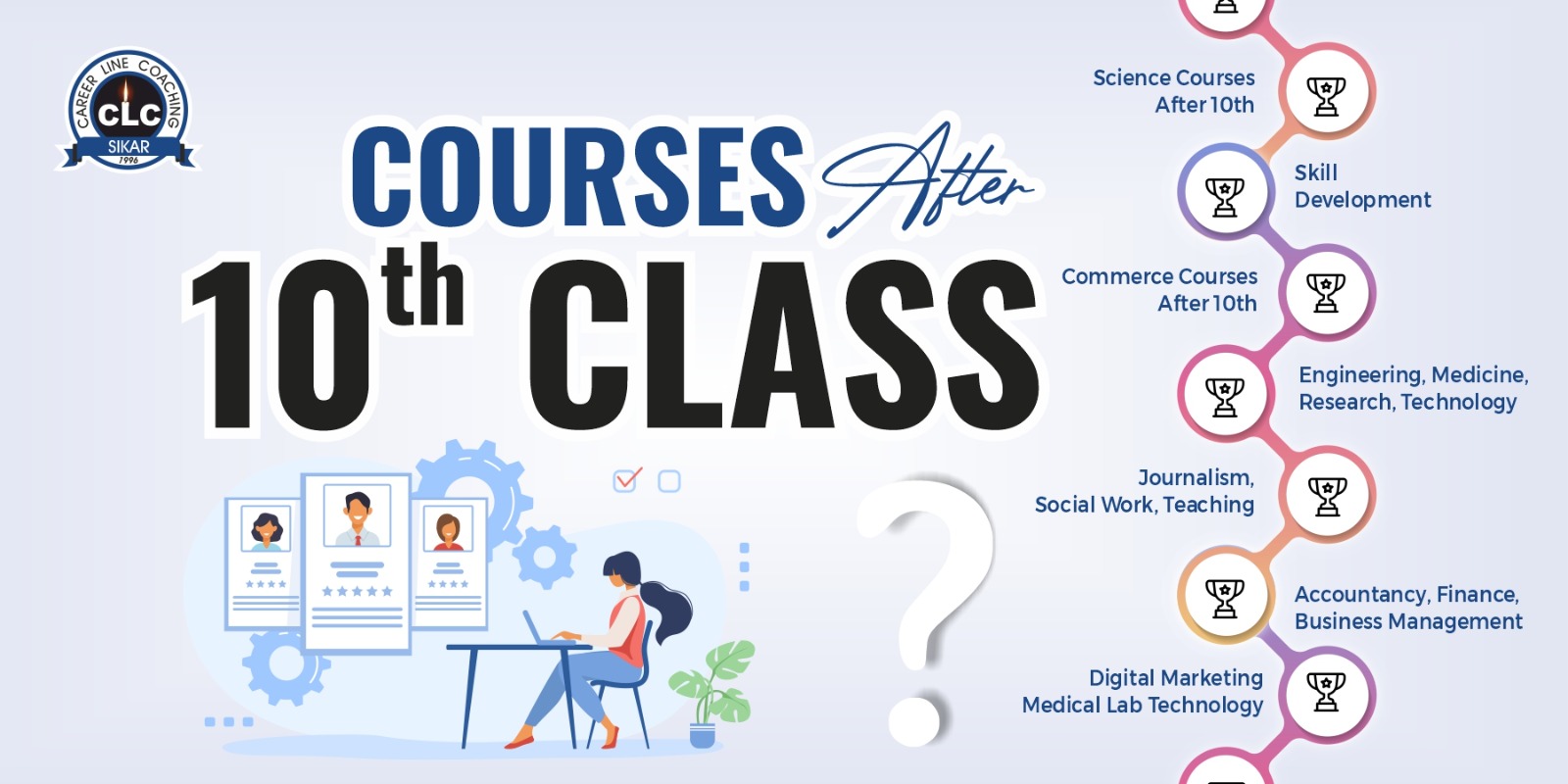Career Counselling and Guidance
List of Jobs After 10th Courses: For Freshers
The Mintly Team
March 21, 2025Choosing a career path after completing the 10th grade is an important milestone in a student’s life. While many opt to continue their education by enrolling in higher secondary studies, others may prefer to pursue vocational or skill-based courses that lead directly to employment opportunities. This blog will explore the various courses available after the 10th grade and the jobs tied to these courses, helping young individuals make informed decisions about their futures.
1. Why Consider Skill-Based Courses After 10th?
Skill-based courses after the 10th grade offer students an alternative pathway to traditional academic streams. These courses are designed to provide hands-on training and industry-specific knowledge, allowing students to enter the workforce earlier. They are ideal for those who are keen on developing technical expertise or have financial constraints that make further schooling challenging.
The key benefits include:
- Early career entry: These programs are shorter and focus on practical skills, enabling students to start earning sooner.
- Lower cost: Many vocational courses are affordable compared to academic streams.
- Job readiness: Students graduate with skills that are directly applicable to specific industries.
2. Popular Vocational Courses After 10th
Here is a list of some popular vocational and skill-based courses available after the 10th grade:
a. ITI Courses (Industrial Training Institutes)
Industrial Training Institutes (ITIs) provide short-term courses that prepare students for technical and non-technical jobs. ITI programs are government-recognized and focus on practical skills.
- Popular ITI Courses:
- Electrician
- Plumber
- Welder
- Mechanic (Motor Vehicle, Diesel Engine)
- Fitter
- Draughtsman (Civil/Mechanical)
- Computer Operator and Programming Assistant (COPA)
- Jobs after ITI Courses:
- Technician
- Electrician
- Machine Operator such as Laser Operator in Jewelry Field
- Automotive Mechanic
- Plumber
b. Diploma Courses
Diploma courses are another popular option for students after the 10th grade. These courses are typically two to three years long and cater to various technical fields.
- Popular Diploma Courses:
- Diploma in Engineering (Civil, Mechanical, Electrical, Electronics, Computer Science)
- Diploma in Hotel Management
- Diploma in Fashion Design
- Diploma in Medical Laboratory Technology (MLT)
- Diploma in Graphic Design
- Jobs after Diploma Courses:
- Junior Engineer
- Lab Technician
- Fashion Designer Assistant
- Hotel Manager Trainee
- Graphic Designer
c. Polytechnic Courses
Polytechnic institutes offer specialized diploma programs that emphasize applied engineering and technology skills. These programs are ideal for students looking to enter technical fields without pursuing a full-fledged degree.
- Popular Polytechnic Courses:
- Civil Engineering
- Mechanical Engineering
- Computer Application
- Electronics and Communication
- Jobs after Polytechnic Courses:
- Engineering Technician
- Maintenance Supervisor
- Jewelry CAD Designer Jobs
d. Paramedical Courses
For students interested in healthcare, paramedical courses offer a fast track to entering the medical field without pursuing MBBS or nursing degrees.
- Popular Paramedical Courses:
- Diploma in X-Ray Technology
- Diploma in Medical Lab Technology
- Diploma in Emergency Medicine
- Jobs after Paramedical Courses:
- Lab Technician
- Radiology Assistant
- Emergency Medical Assistant
e. Certificate Courses
Certificate programs are short-term courses (6 months to a year) that focus on specific skills. These programs are often less expensive and can be completed quickly.
- Popular Certificate Courses:
- Certificate in Data Entry Operations
- Certificate in Beauty and Wellness
- Certificate in Retail Management
- Jobs after Certificate Courses:
- Data Entry Operator
- Salon Assistant
- Customer Service Associate
3. Sector-Wise Job Opportunities After Skill-Based Courses
a. Automotive Sector
Students who pursue ITI or diploma courses in mechanical fields often find employment opportunities in the automotive sector. Roles like mechanics, technicians, and machine operators are highly sought after.
Many Warehouse Jobs are open with automotive and manufacturing sectors. These jobs have 3 Shifts per day and get paid hourly.
b. Construction and Infrastructure
ITI graduates in civil trades such as draughtsman or fitters can work as construction supervisors or assistants in infrastructure projects.
c. Healthcare
Paramedical courses open doors to jobs in hospitals, clinics, and diagnostic labs. Positions such as lab technicians, radiology assistants, and emergency responders are common.
d. Hospitality Industry
Diploma holders in hotel management can work as front desk executives, housekeeping staff, or kitchen assistants in hotels and resorts.
e. Creative Industries
Vocational courses in graphic design, fashion design, or photography cater to creative individuals seeking roles as assistants or freelancers in media and design industries.
4. Government Initiatives Supporting Vocational Education
Governments worldwide recognize the importance of skill-based education and have rolled out initiatives to support students pursuing vocational training after the 10th grade. In India, schemes like the Skill India Mission and Pradhan Mantri Kaushal Vikas Yojana (PMKVY) aim to equip youth with employable skills.
Such initiatives often include scholarships, free training programs, and partnerships with industry leaders to ensure job placements.
5. Choosing the Right Path After the 10th Grade
When deciding on a course or job opportunity after the 10th grade, students should consider the following factors:
- Interests: Choose a field that aligns with your passion and aptitude.
- Job prospects: Research industries that offer stable employment opportunities.
- Financial considerations: Evaluate whether you can afford the course fees or require financial aid.
- Growth potential: Opt for roles with scope for career advancement over time.
Consulting with career counselors or mentors can also help students make informed choices.
Final Thoughts
Completing the 10th grade opens up a world of opportunities for young individuals ready to explore skill-based learning and vocational training. From ITI courses to diplomas and certifications, students can choose paths that align with their interests and lead directly to employment.
While academic streams remain an option for those pursuing higher studies, vocational education offers practical skills, quicker entry into the workforce, and opportunities for financial independence. By choosing the right course based on interests and market demand, students can build fulfilling careers at an early age.
All Tags
